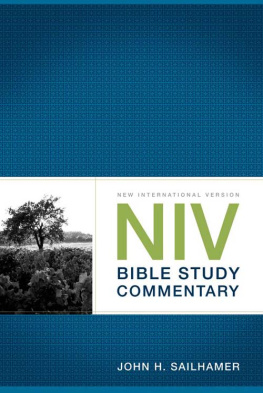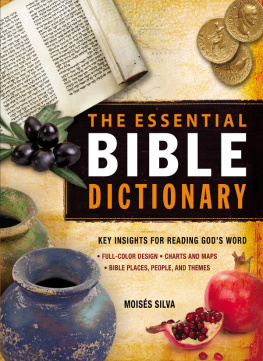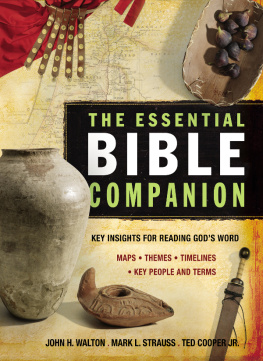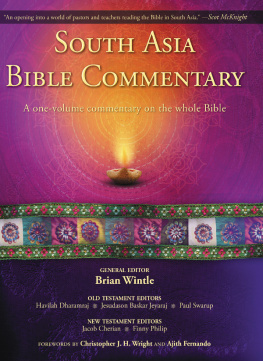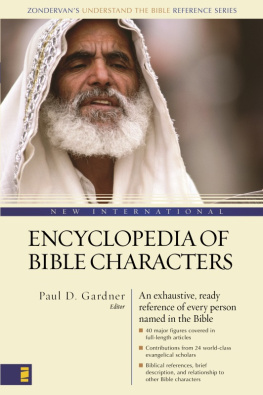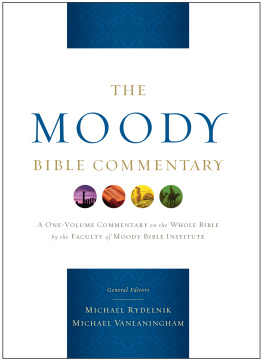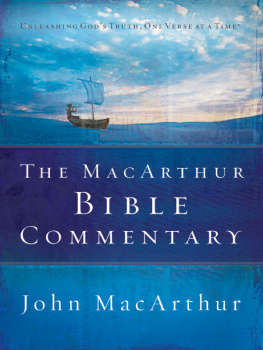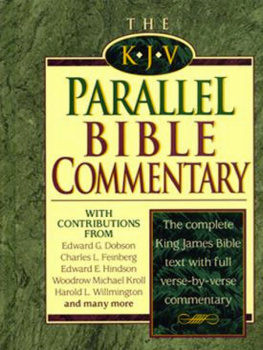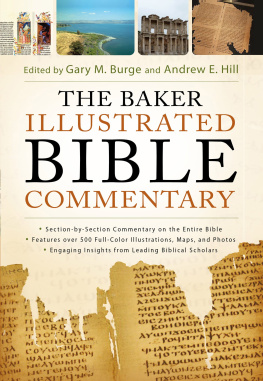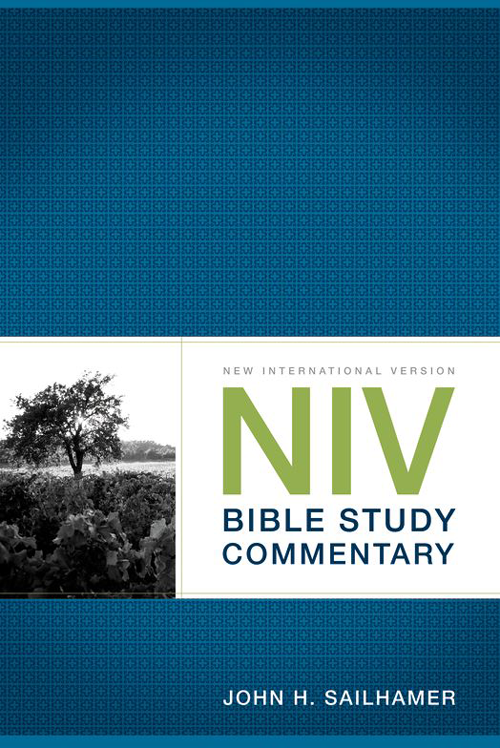T here are many different kinds of commentaries on the Bible just as there are many reasons why one would want to use a commentary. Technical commentaries are essential for a detailed, close study of a biblical passage. Devotional commentaries help you as the reader see the application of a biblical passage to your life. Bible survey commentaries give the reader an overview of the contents of each book of the Bible. The NIV Bible Study Commentary does not fit exactly into any of those categories. It is not a technical commentary, even though it is based on a thorough technical reading of the Bible in both Hebrew and Greek. It is not a devotional commentary, in that its focus is on the meaning of the text rather than on life application. Nor is it a Bible survey, though in reading it one will certainly get a survey of the entire Bible.
This commentary is an abridgment of my NIV Compact Bible Commentary. Its purpose is to aid you in reading the Bible on your own. There is no substitute for reading the Bible, Gods Word. This commentary will provide you with brief help in understanding the Bible while you are reading it. What is often lacking in reading the Bible is a sense of the whole Bible. We can easily get lost in the details, which only make sense if we have a view of the whole. We hope this commentary will give you a sense of the entire Bible and how that impacts the meaning of a particular passage.
There are great themes in the Bible. This commentary develops those themes throughout the Bible and shows how those themes and the images that depict them come into play in each passage.
I am thankful to David Frees for abridging the NIV Compact Bible Commentary and to Verlyn D. Verbrugge, senior editor at large at Zondervan, for seeing it through to completion.
T he Bible is a book made up of many books, written over many centuries by authors with vastly different backgrounds and cultures. Many are well-known: Moses, David, Solomon, Ezra, John, Paul. Such men are not only the leading characters in the Bible, they are also its leading producers. A surprisingly large number of the biblical authors, however, are nameless. Who wrote the books of Kings, for example? Who wrote the book of Hebrews?
Fortunately, the answers to such questions are not of major consequence in understanding the Bible. We know the Bible by reading these books. Some kinds of books, of course (e.g., a diary), require some information about its author before it can be properly understood. Other books, like works of literature and history, are written so that we do not have to know the author to understand and appreciate the work. The Bible is that way. It is written simply to be read.
The Bible is a unique book. It is the Word of God. That means basically two things: (1) The Bible is divine revelation; (2) the Bible is divinely inspired.
The Bible teaches that God has left signs of his existence and power in his work of creation. From the world around us and from within ourselves, we can see evidences of Gods glory. From the world we can see that he is a powerful and wonderful God. From within our own conscience we can know that he is a personal and holy God. But there is a limit to what can be known about God in that way. For example, apart from the Bible we cannot know Gods will or his love for us. We may know that we need Gods grace and mercy, but without God himself speaking to us we cannot know how to receive it. The Bible tells us so.

